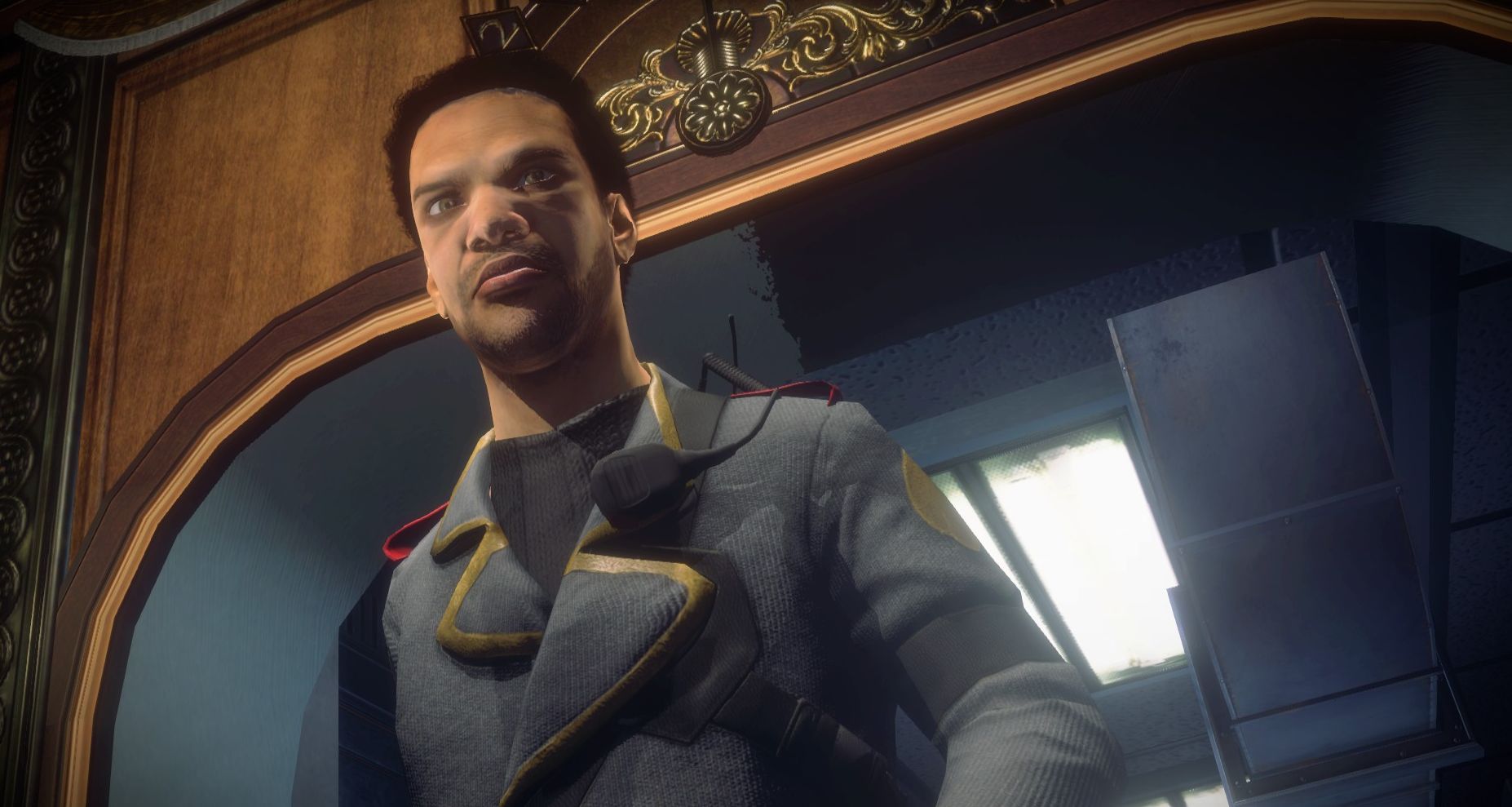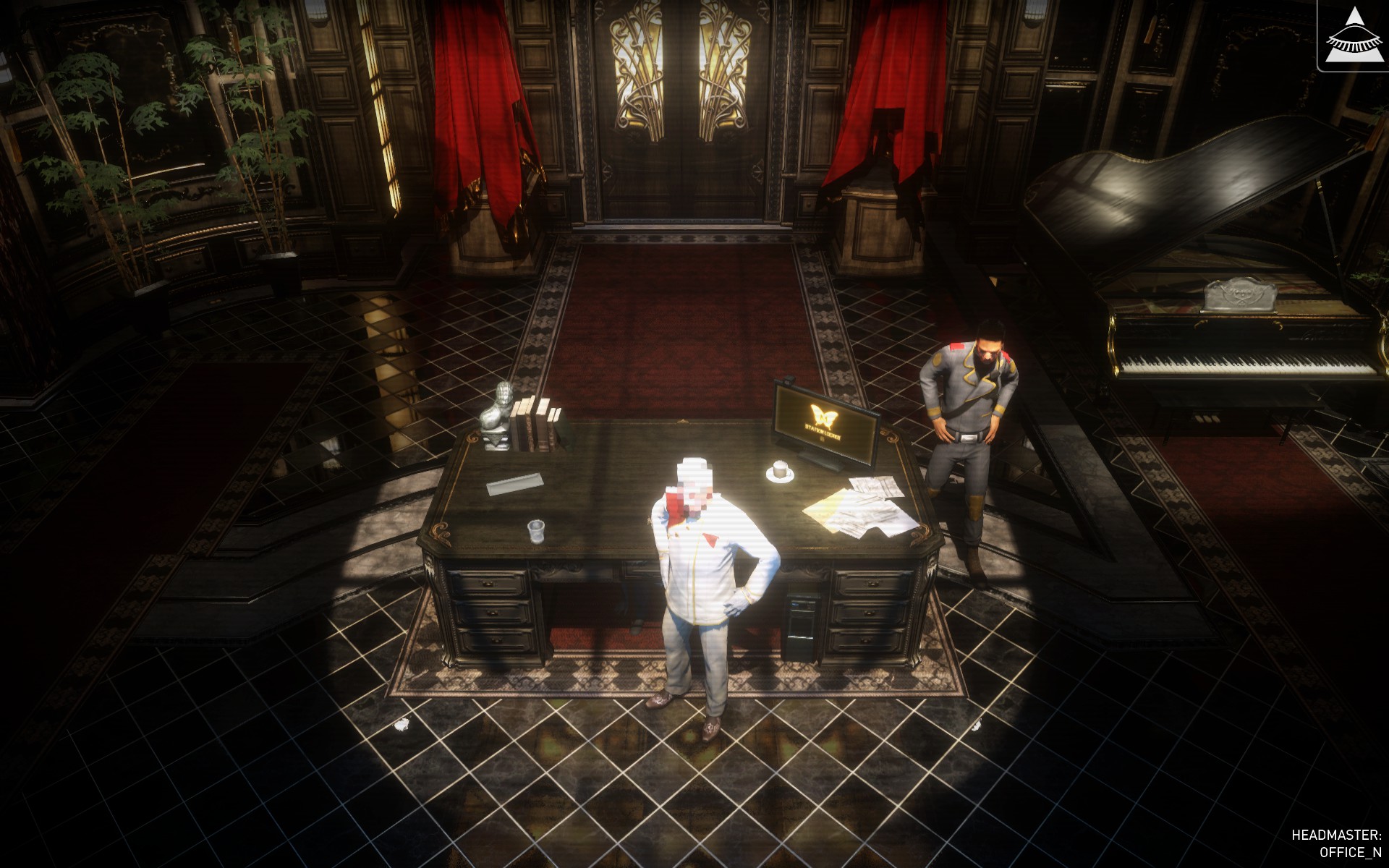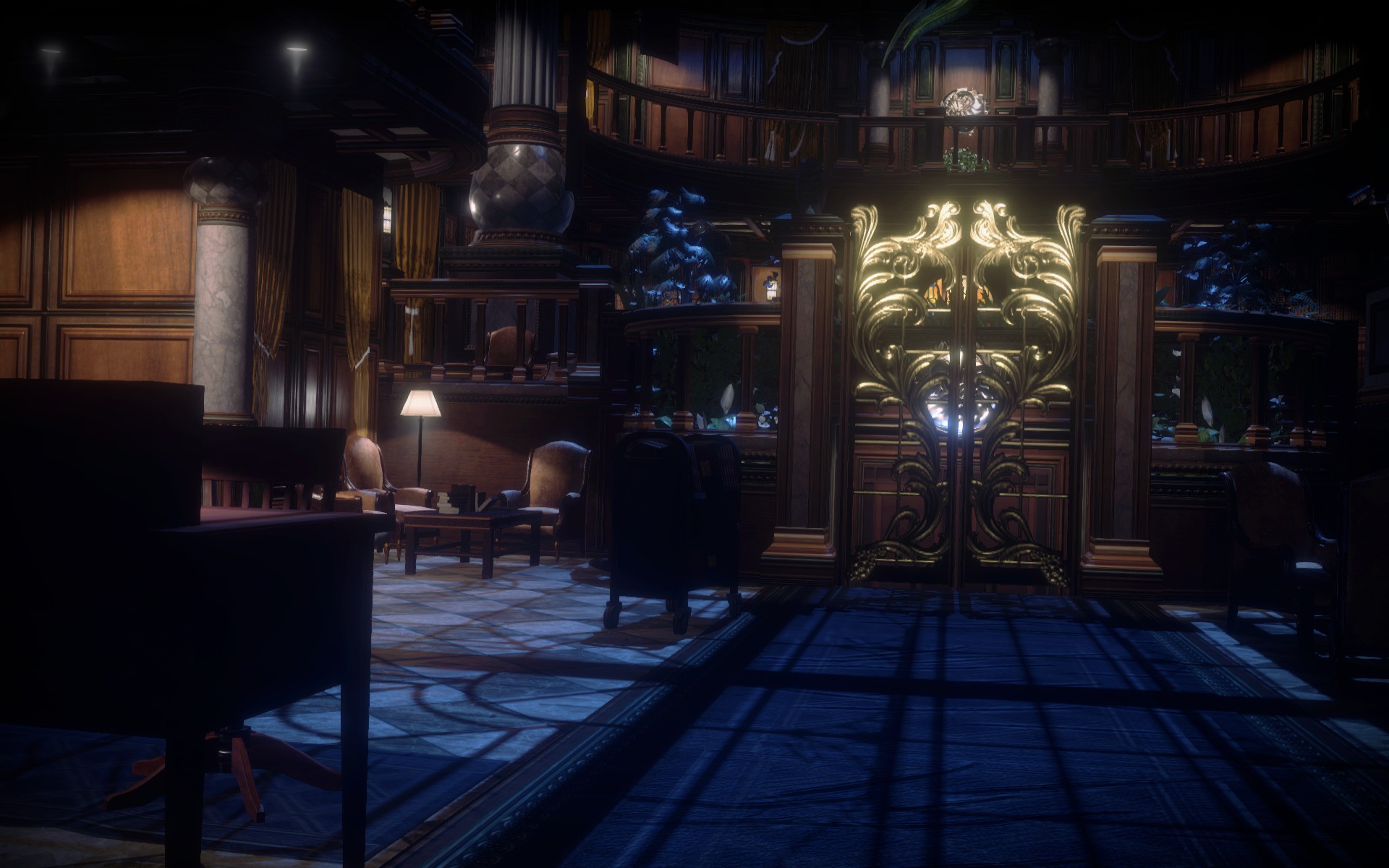
You can’t buy République's episodes one at a time on PC; you have to buy the whole season for $25/£19. Only three of the five planned episodes have been released, so it doesn’t make much sense for us to score République Remastered as a finished package just yet. We’ll review and score the whole thing when all the episodes have been released, while individual episode reviews like this one will be unscored criticism.
By Jordan Erica Webber
Not enough games explore the distance between player and protagonist. In République Remastered, a visually overhauled version of the episodic mobile game, the relationship is laid bare. The hero of the story is Hope, a prisoner in a totalitarian society called the République. You play her anonymous helper, hacking into CCTV cameras to follow her progress, telling her where to go but never controlling her directly. Click on a spot and she’ll move there, but if she spots a guard, she’ll say so and try to retreat. She moves more stealthily in occupied rooms, and will duck behind cover or peer around corners, which adds to the fiction that she’s an independent thinker.
Your job is to use the maligned surveillance technology to help her escape the surveillance state, or at least the facility—Metamorphosis—in which Hope was born. Pressing space activates your “OMNI View” software, which pauses the action (narratively jarring but useful), and lets you click on other cameras to switch view, scout ahead and unlock doors. It’s like Watch Dogs without all the murder. Hope is averse to violence and will go no further than shocking the Prizrak guards with their own tasers.
You’re guided initially by an insider called Cooper, and a Metroidvania-type process develops. Hope wants help from the librarian, but you can’t unlock the library door without upgrading your software, so Cooper directs you to a room at the other end of the facility to do just that. There’s some backtracking, but I didn’t see any room enough times to get too bored, and while some of the more clinical lab-style environments are generic the rest—particularly the old-fashioned wood-panelled rooms like the large library—are more interesting, and prettier for being remastered in Unity 5.

I expected the task of leading Hope past guards to become repetitive, particularly since I played the three available episodes back to back, but it never did. Partly that’s because failure is less frustrating than in a traditional stealth game: the Prizrak just escorts Hope to a nearby confinement room, and once he leaves you let her out again. The fiction forbids her death, but it does make the Prizrak seem incredibly naïve. I must have helped Hope escape from confinement at least a dozen times, and they never thought to come up with a better solution.
One thing that does make the Prizrak feel like more than shortsighted AI bots, presumably as a happy accident, is that some are named after Kickstarter backers. They have biographies complete with a mug shot and whatever the backer thought would be funny to list under medical history and criminal charges. Differing Prizrak armour and armaments give them more meaningful variety. Suited-up guards are invulnerable to tasers, but vulnerable to pepper spray, for example.
Hope can use pepper spray and even sleeping gas mines when instructed, though she'll also autonomously defend herself when caught. You can add to your personal hacking arsenal by trading intel with a “Data Broker” in exchange for upgrades to your OMNI View. Because I’m a sucker for gossip, I snubbed one that let me see Prizrak through walls in favour of the ability to read emails and listen to answerphone messages.
The biggest gaming news, reviews and hardware deals
Keep up to date with the most important stories and the best deals, as picked by the PC Gamer team.

There’s an impressive amount of bonus story to uncover, which rewards thorough exploration of the facility. I once left Hope frozen in a room she found upsetting (for reasons I won't spoil) just so I could look through banned books I’d found, and listen to the audio descriptions given them by the “Headmaster”. Those who’ve read any of those included—A Clockwork Orange, Animal Farm—will be interested to hear why they've become prohibited.
Perhaps the most interesting use of audio clips is in episode three, in which you spy on people’s lives and assist with some thoroughly unethical journalism. Most of the side activities—like turning on statue lights in the right order to open a door—are less interesting, but I found this one particularly engaging.
Each episode has been more interesting than the last, which bodes well for the two episodes still to come. By this point, I care about helping Hope, and not just because I’m supposed to—perhaps because she actually begged me not to let the Prizrak Taser her again—and I’m even invested in the wellbeing of some other characters too. The cliffhanger endings are abrupt, but they work, and I’m genuinely looking forward to finding out what happens next.
PC Gamer is the global authority on PC games—starting in 1993 with the magazine, and then in 2010 with this website you're currently reading. We have writers across the US, Canada, UK and Australia, who you can read about here.


